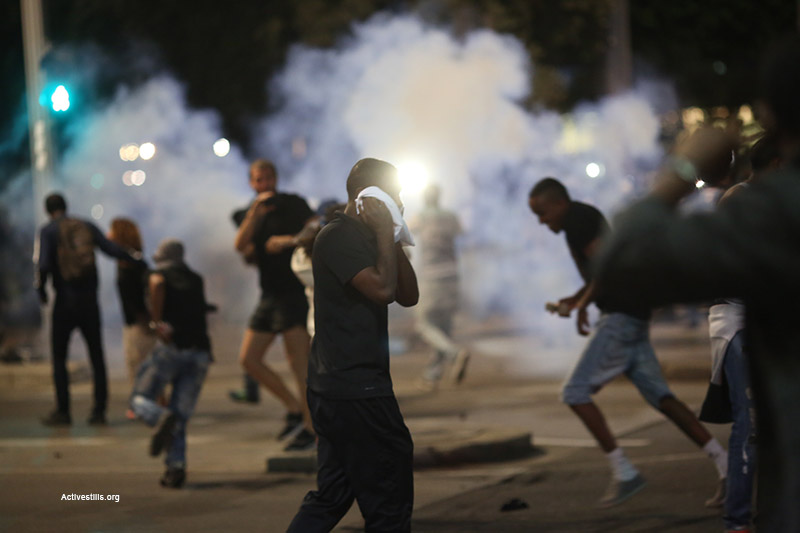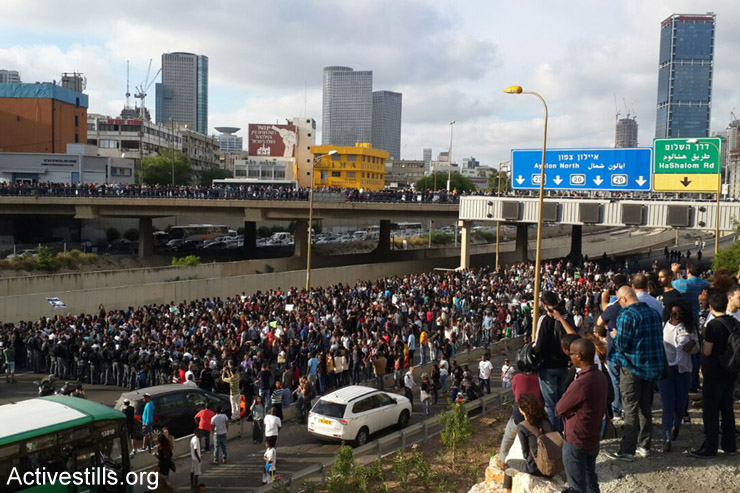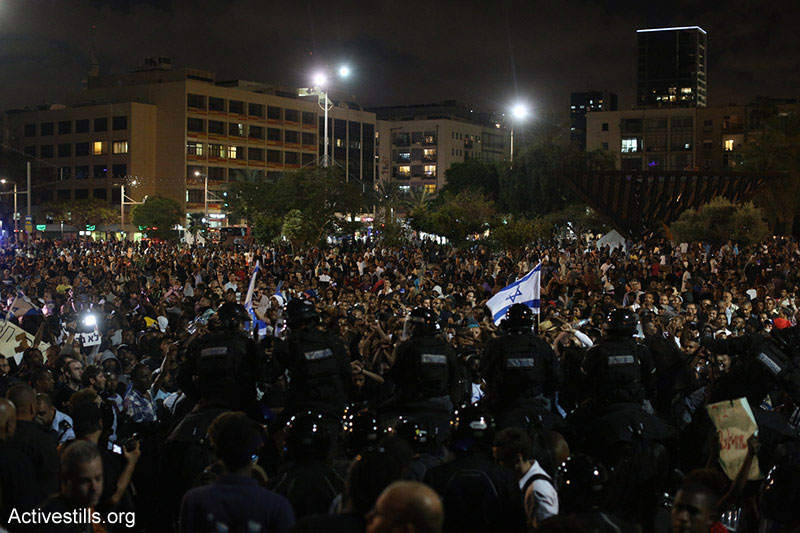Police use stun grenades, violence against protest in Tel Aviv’s Rabin Square, sparked by video of two officers beating a black Israeli soldier. Dozens reported injured, at least 26 arrested.
Photos by Oren Ziv, Yotam Ronen, Keren Manor / Activestills
Text by Michael Schaeffer Omer-Man

A protest by Israelis of Ethiopian descent against discriminatory police brutality was met with police violence for the second time in a matter of days, this time in central Tel Aviv on Sunday.
Police used stun grenades, water cannons, riot officers and mounted officers to disperse several thousand protesters who arriving in Rabin Square some five hours after the demonstration began elsewhere in the city.
There were dozens of injuries reported by protesters and police. A police spokesperson later said that 26 people were arrested. Activists indicated that more protesters were in police custody.
The protest followed a similar demonstration in Jerusalem Thursday night, which was a response to video of Israeli police beating an Israeli soldier of Ethiopian descent.
Protesters flipped over a police car in Rabin square and were throwing plastic bottles at officers.
A number of members of Knesset joined the protest when it started. The protesters soon descended onto Tel Aviv’s main freeway, blocking traffic in both directions for hours.
Eventually police used force to clear the freeway and the protesters continued marching toward the city’s most famous square, Rabin Square.






“I was in the Border Police and I’ve never seen stun grenades used at a protest [in Israel],” protester tells Channel 10. “We’re Israelis, we’re Jews.”
Even in the most tense and violent days of Tel Aviv’s social protests in 2011 and 2012, in nights when bank windows were broken and 90 people arrested, police did not use crowd control means generally reserved for the West Bank and Arab protesters.
In late 2014, intense protests against discriminatory police violence took place in the northern Israeli town of Kafr Kana after Israeli police killed an Arab man while he was fleeing. Earlier this year, massive protests took place after police killed two unarmed Arab men in the southern city of Rahat.
Joint List chairman MK Ayman Odeh was one of the only public figures to make the connection between the various struggles against police violence directed at specific racial or ethnic groups in Israel.
“As a member of the Arab population, which suffers from racism and violence by the police it was only natural for me to join the protest by the Ethiopian population today in Tel Aviv,” Odeh said in a statement. “I promise to stand and struggle by their side until there is a more equal and just society here, in which there is no difference between black and white, man and woman, Jew and Arab.”
Prime Minister Benjamin Netanyahu announced late Sunday that he would hold meetings with representatives of Israelis of Ethiopian descent, including the soldier whose beating sparked the current round of protests.
Video by ‘The Hottest Place in Hell’:
Correction:
This article has been corrected to reflect that the previous protest took place Thursday night and not Saturday, as was mistakenly stated.

